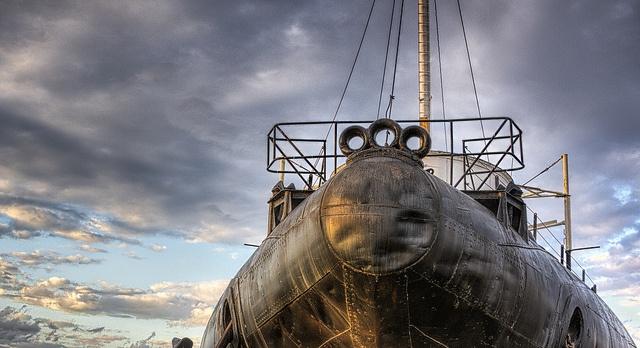
By Averill Brewer
If you are an old-school multinational corporation, your business models and strategies are generally traditional: the result of almost a century of being able to extract resources and massively produce products without having to think much about the consequences or your producer responsibility. If you are also open to transitioning your business models and strategies into the circular, closed-loop models of the 21st century, it’s probably going to be a slow process. Like turning a tanker ship.
Accountability, producer responsibility — no one should be let off the hook from these duties. But being solutions-oriented means working with others toward a common goal, even if it takes a long time and even if they have behaved badly in the past. The ball is fumbled: A corporation tries to take the easy way out in terms of social and environmental responsibility through superficial marketing campaigns. We can call this the Kardashian approach to sustainable development: When a company tries to contour their way to a new face. But it’s what’s on the inside that counts.
On March 8, TriplePundit hosted a Twitter chat with Monsanto CEO Hugh Grant, Dr. Nick Goeser, director of soil health and sustainability for NCGA’s Soil Health Partnership, and Pradip Das, principal research of experiment science for Climate Corp., to discuss the future of agriculture. Solving problems requires listening to opposing parties; it requires face-to-face engagement; it means more lunch conferences and coffee meetings in order to learn from each other; and it’s also about understanding that everyone’s favorite villain Monsanto possesses a degree of unrivaled power and influence due to its wealth accumulation and market domination over the past century. Isolationism is a detrimental policy approach to change-making. Think short-term transition, long-term transformation.
A recent report released by the Ellen MacArthur Foundation, entitled Intelligent Assets: Unlocking the Circular Economy Potential, exemplifies that big data, the ongoing digital age and the overall Internet of Things (IOT) will combine their powers with the principles of the circular economy and improve the ability for large corporations to make that transition and eventual transformation away from unsustainable business because they will have the data and knowledge to do so. The report also provides a very intelligible visual about businesses that are “already operating in the circular economy-intelligent assets interaction” matrix.
With that in mind, below are three companies in various stages of traditional, transitional and transformational paths to either changing their business policy by utilizing the aforementioned matrix or have already founded their core principles on these ideas from the start.
Philips
Philips is a widely known technology company focusing on three main divisions: electronics, lighting and healthcare. As part of the company's belief in a sustainable world, it is working to transition toward a circular economy by, firstly, viewing the circular economy as a way to “use resources more effectively and [to see it as] a driver for innovation in the areas of mater, component, and product reuse as well as new business models such as solutions and services.”One way that Philips is transitioning is through the use of big data, which has “shifted the manner and scale in which problems can be solved, providing deeper market knowledge and increasing consumer-focused solutions.” The company's website states that it is focusing on “refurbishing healthcare products like MRI machines, so vital components can be reused, delivering light to consumers as a ‘service’ versus a ‘product to buy’, and “using recycled materials as an integral part of product design.”
Arup
Arup is a firm of designers, planners, engineers and technical specialists who are best known for designing the Sydney Opera House. They fall into the matrix in areas like “extending the use cycle length of an asset” with “knowledge of the condition of the asset” and looping/cascading an asset through additional use cycles” with “knowledge of the condition of the asset." Arup also partners with sustainable materials companies like Ecovative to combine sustainable materials into their construction.Ecovative
Ecovative is the world’s leading biomaterials company that creates and scales environmentally-friendly products. For example, it developed a material grown from fungus that is cost-competitive with current building insulation products in the market. Ecovative’s mission is to “rid the world of toxic, unsustainable materials by creating products that enable companies and individuals to achieving their sustainability goals without having to sacrifice on cost or performance.”Image credit: Flickr/Randen Pederson
Averill Brewer is a writer currently living in England. She possesses a master's of international business with a focus in sustainable development. In her free time she writes for her blog Loco Eco. You can email her at averill.brewer@gmail.com.
TriplePundit has published articles from over 1000 contributors. If you'd like to be a guest author, please get in touch!














